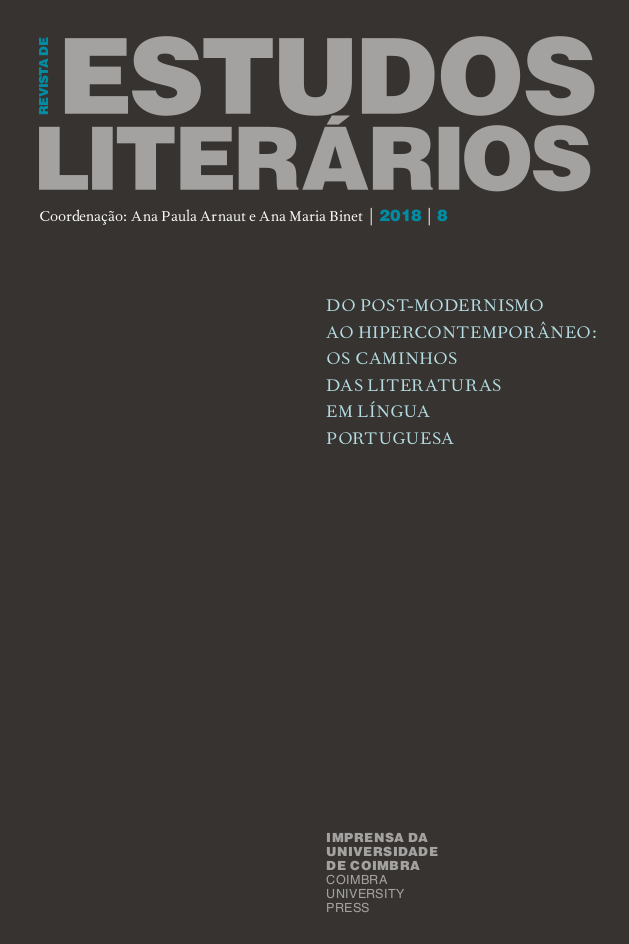UNDER THE SIGN OF CHRONOS AND KAIRÓS: THE NARRATION OF TIME IN LOBO ANTUNES
DOI:
https://doi.org/10.14195/2183-847X_8_11Keywords:
Chronos, Kairos, time, narrative, Lobo AntunesAbstract
The literary project of António Lobo Antunes includes, among the many peculiarities of his romanesque technique, the production of fictional meanings that question the temporal linearity. The purpose of this study is to analyze, in the novel I shall love a stone, how the organization of time is articulated under the sign of Chronos and Kairos. In the interpretative scope are considered the hermeneutic formulations of Paul Ricoeur, explained, especially, in Time and narrative. For Ricoeur, the act of reading is responsible for effecting the text, because in historiographic production, as in literature, this action concretizes an intentionality that is based on the refi guration of time, common to history and fiction. The representation of historical time configured in the narrative of I shall love a stone employs elements that Ricoeur calls “connectors of time lived and of universal time”, represented by instruments such as the calendar, the idea of the sequence of generations, the documentary-photographic archive and the vestiges. The examination of the text, not in the sequential order
conformed by the graphical and physical formatting of the book object, but from the perspective of an (im)possible linearization of historical time, from an inaugural landmark, or founding event, which refers to the beginning of the episodes of this fiction and allows the hypothetical assignment of “dates” to events, shows awareness of the destructive time for what subsists is the erosive force of the succession of days in relation to objects and individuals.
Downloads
Downloads
Published
Issue
Section
License

This work is licensed under a Creative Commons Attribution-NonCommercial-NoDerivatives 4.0 International License.
Authors retain copyright and grant the journal right of first publication with the work simultaneously licensed under a Creative Commons Attribution License that allows sharing the work with recognition of authorship and initial publication in Antropologia Portuguesa journal.





